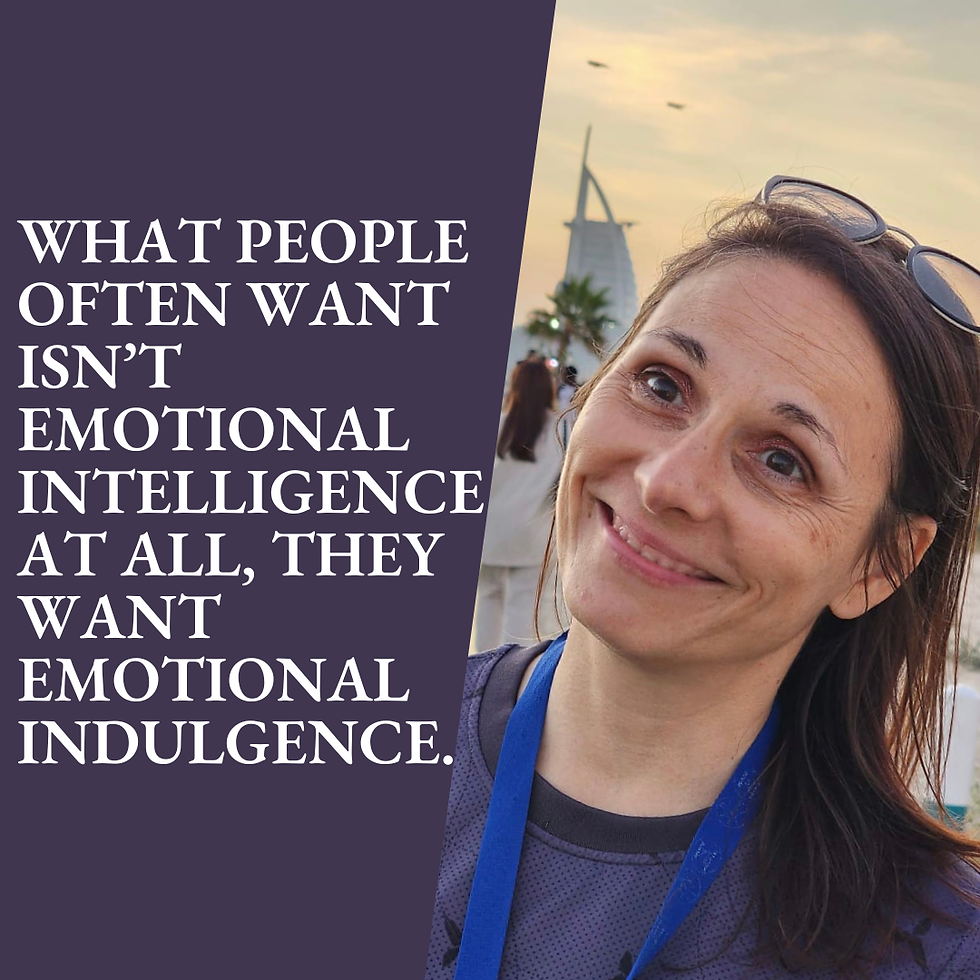Introverts' Needs are Ignored
- Szilvia Olah

- Apr 19, 2024
- 4 min read
Dear corporate gurus who love making us play games,
As it repeatedly happens, yesterday, again, I ended up in a debate over icebreakers and games as a learning tool or gamification, as you would like to call it. Watch here:
Here is the thing: if you want to play childish, age-inappropriate games, I am all for it. But I would like to request that you consider those who do not want to play games and prefer to learn in any other way possible. Playing games is just one way of learning, so if you are as good at your job as you claim, you can surely find other alternatives. But you don't! Instead, every single one of you tries to convince us/me that playing games is good for us. It engages the brain differently, encourages different kinds of interactions, etc. I agree, but it still doesn't suit me. I still don't want to play games, and if you ignore my request, you are just acting like my gran when I didn't want to eat the spinach, and she forced me by saying, "It is good for you, eat it."
If you guys are good at your jobs, you should design and facilitate workshops with different people in mind. Some will love your games, and some will hate them. Why don't we accommodate them? There are all these inclusivity agendas, and the moment I protest against the games, I am told that I am not a team player and that it is good for me. Yesterday, a VP of Diversity tried to convince me that I was wrong about not wanting to play games. WOW! No wonder your DEI charade is now being dismantled and put in the bin. You all are rather selective about what should be included and what not. It is so funny that nobody has ever asked me, "Why don't you want to play, and how would you rather learn?" No, they attack you directly with their fierce argument for gamification using big words like brain activities, etc.
Breaking news: I understand the neuroscience of learning, and I have a master's to show for it. Do you? So, let me explain how it should work and what educational psychology says about icebreakers. I don't think you will like it. Read here.
And here. Enough of the happy clapping.
The problem is not the games (although they are quite useless); the problem is that they are forced upon people, and when they give you the feedback that you were so keen on training them on, you choose to ignore it. How is that helping anyone's learning? Unlike you lot, I ask people what they want. I asked hundreds of people who are "traumatised" by these games, and nobody is listening to them. Some would rather skip workshops to avoid the circus. Is this really what you want? Is this your choice instead of listening and accommodating? That's poor!
But it is not only about face-to-face games and workshops. I had to test maybe ten learning applications with scoreboards, ranking, trophies, etc. I couldn't bloody learn anything. Give me the information written, and I will have it all read, understood, and learned. Instead, you ask me to spend more time on the stupid mobile clicking it so you can say, "The learning uptake has increased" Okay, but has the learning increased at all????? Mine went down when you asked me to use the app to learn about the hotel's loyalty program. Guess what? I asked the team to use the app to learn, and I took the written program, which was 87 pages (including the T&C). I gave everyone and myself a week to learn and asked a colleague to design a test. Guess who scored the highest. ME!!!!!!!!!!! So get lost with your gamification crap. It is not for me. Let people learn the way they want. Your objective is to achieve a learning outcome, not method compliance.
Play as much as you want, but find your partners just like you would on the playground. Let grown adults decide how they want to learn because, at the end of the day, that is one of the six adult learning principles that you happily ignore while designing programs. And then you come out and try to convince me that I am wrong in what I want. Oh please.
Kind regards,
Those who don't want to play. Most likely, the introverts. But if you are an extrovert, I spoke for you too:-)
More on this topic and other kiddies' stuff at work in my first book, The Corporate Kindergarten. https://www.amazon.com/dp/B0BT6YJDN2/ref=tsm_1_fb_lk
If you want to see more redundant HR stuff, here is some exciting news! My second book, "The Blind Leading the Disengaged - From Kindergarten to Employee Experience," is dropping in May! It's a treasure trove of solutions and cool ideas to shake up your people management game. But before we get there, let's chat about where we're at now—The Corporate Kindergarten, as I spilt the beans in my first book. Check it out, and let's transform your workplace from a daycare to an awesome employee experience hub!:
.png)




Comments